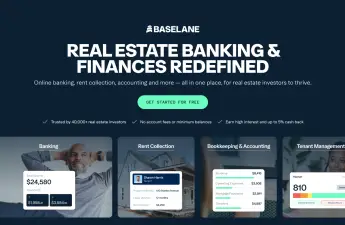In the first installment of Landlording A-Z, we discussed whether or not you should be a rental property. In this episode, we will go over how to choose which rental to buy. There are many factors that go into choosing a rental. This article will lay out the basics as we help you navigate this process. Below is a brief rundown. See the complete episode for more information.
Deciding On Your Objectives
To best determine the type of property you should purchase, you should first think about your objectives. This includes short-term gain, immediate cashflow, or long-term/generational wealth. Visit the previous episode to learn more.
Short-term gain often comes in the form of improving and selling a property, or buying a property simply because you believe its value will go up. You could also be looking for immediate cashflow, which is usually a long-term hold. Or you could be interested in building long-term wealth, which is usually a blend of cashflow and appreciation. A subset of this is generational wealth — having a property that you can pass on to future generations to ensure their financial security.
Budget
Here are some questions to ask yourself before choosing to buy a rental property:
- Are your finances in order?
- How much debt do you have?
- What’s your credit score?
- Do you have an emergency fund?
Ask yourself these questions to make sure that your own house is in order before you start buying additional properties.
- How much do you have for a down payment?
- How much are you willing to spend for a down payment?
- How much rent do you need to make to cover operating expenses?
- How much money do you need to have in reserves?
- How much do you have for immediate improvements or capital expenses?
Consider buying a lower-priced property that needs work, in which case you would use a portion of your capital on the down payment and the rest on improvements. This is a great way to add value to a property, but it takes careful planning to keep improvement costs down and it can sometimes end up being more than you can afford.
Analyzing Your Abilities and Limitations
Self introspection will help you determine why type of property you should look for. Do you have the time, money, and ability to pick a project that requires improvements? Or should you pick something that’s ready to go?
The following can help you determine what time of property you should look for.
- If you’re buying a property that needs improvement, are you handy?
- Do you have the time, money, ability, and willingness to repairs and improvements yourself?
- Are you able to travel if the property is out of state?
- Do you have time on evenings or weekends to do showings, inspections, field maintenance calls, etc?
- Do you like meeting and screening tenants?
- Are you able to analyze numbers and stay organized?
- Do you need a property manager? In some cases, if it’s a large enough property, would you want a resident/on-site manager that can deal with immediate concerns?
Choose a Market
One thing to think about when choosing a market is whether you’re looking for a property that’s local or away from home. Sometimes, there are higher potential yields on rental properties that might not be in your local market. If you plan to look away from home, do you intend to, and can you afford to, hire a property manager?
Making a careful decision involves researching many aspects of a market’s conditions, such as rent rates. You’ll want to look at differences between neighborhoods, and know what the quality of housing stock is that you’ll be competing against. Thus, you should have the ability to learn and research about markets, rents, comps, and cap rates.
Researching the financial variables in the market:
- What does the rent trajectory look like? Is it going up?
- What’s the general economic outlook? Look at things like population. Are people moving in? What does the job market look look? What are housing costs?
- What are the tenants going to be like? Are they students? What are their professions?
We highly recommend going to see the markets you are shopping in. There are some investors who are able to succeed just by looking at the numbers, but they are usually seasoned, experienced investors — we think on-the-ground knowledge is imperative. Take a few days to look around at different neighborhoods. If you’re looking in a location you don’t know well, a good real estate agent can help you learn about the characteristics of different areas.
Setting Search Criteria
This is where you collect all your thoughts about your goals, budget, capabilities, appetite for work, and preferred locations. It’s time to organize those thoughts and create a written criteria list.
Now that you’ve chosen your market, and selected a few target neighborhoods, you can shop in multiple markets, but it’s already challenging to learn about all the properties you’ll be looking at, let alone compare them against those in other locations.
Think about whether you want a single family, small multifamily, or larger multifamily property. How many units do you want?
Think about your budget. Do you want a fixer or turnkey, something that’s already ready?
Then, you can start looking at target cap rates, gross rent multipliers, and other metrics you want to use.
Putting Together Your Team
Decide who you need to help you make a good decision in buying your rental property. Here are the most common roles:
- Agent (or no agent?)
- Property inspector
- Lender
- Attorney
- Insurance agent
- Contractor and/or handyperson
- Local advisor? Finding someone who is a successful investor in your market, who can help you with the myriad of questions that come up, is an invaluable advantage.
Choosing Financial Analysis Tools and Methods
There are a number of different metrics that you can use. Often, the first metric is the gross rent multiplier, the purchase price divided by the gross rent. This will typically give you a number between 12 and 16. A lower number is better, as it means you’ll need fewer annual gross rent amounts to pay off the property. This is a quick way to determine how long it will take to pay off the property based on rent alone. However, this doesn’t take into account any of the expenses that you will have.
Cap rate is what you’re likely to make on the property. You’ll often get a cap rate estimate in property listings. It will give you a current cap rate, which is what you’ll make each year after operating income and expenses.
Additionally, there will also often be pro-forma projections in the marketing materials. You should be aware of such information as it often paints a rosy picture of how much more profitable a property will be once you own it. Ask questions about how each property operates, and challenge their assumptions.
You will need to find out realistic income and realistic expenses:
- Actual rents (see leases) + ability to increase rent (both market and legal)
- Other possible ways to increase income: parking, storage, laundry, etc.
- Vacancy rates + ability to collect unpaid rent, late fees, etc
- Are vacancy rates realistic, and can they show history?
- Ask to see records and leases
- Expenses: utilities, taxes.
- Site Maintenance: landscaping, pools, roof, paint, elevator inspections, etc.
Be careful to understand how utilities, site maintenance, and more are handled and what they are likely to cost. Pools and lawns are a huge expense, for example.
Consider whether the estimated maintenance costs are realistic. The age and condition of a property can greatly impact how much it costs to operate. This is where an inspector, contractor and/or handyperson can be of help when evaluating a property.
Deciding which market to buy in should be informed by the returns you can expect on your investment, while also considering your risk tolerance, ability to self-manage, and other specifics of your situation.
Using Analysis Tools
Once you have your realistic income and expense numbers, there are tools and calculators that can help your analysis. The main ones we like to emphasize are for net operating income, gross rent multiplier, and cap rate. There are additional ones that others — and lenders — may consider.
View our “Rental Property Calculators for Landlords” article for more information.
One that we’d like to point out is DealCheck, a software that will help you analyze properties. All you need to do is enter income and expense numbers, and DealCheck will tell you whether a property meets the criteria that you have.
Something to keep in mind when doing calculations is that there is no exact number that qualifies as “good.” You should compare properties and take everything into consideration.
Financing Options
- Traditional commercial loan: 20-30% down, cash flow pays monthly principal + interest payments
- Hard money loan (less rigorous approval, faster financing, higher rates, shorter term)
- Construction/rehab loan
- Refinance other properties: Buy, Rehab, Rent, Refinance, Repeat (BRRRR method)
- Line of credit (personal) and/or HELOC
- “House hacking” ie, buy a duplex, live in one, rent out other
- Can get primary residence loan, use the rent to pay mortgage
Takeaway
Once deciding to purchase a rental property, there are a plethora of things to take into consideration. However, we hope that this article lays out everything you need to know to make the smartest decision for yourself.
Landlording A-Z Series
Our Landlording A-Z series will walk you through each of the stages, tasks, and issues involved in rental real estate investing. In our next installment we look at the pros and cons of hiring a property manager vs managing your rental yourself. Hint: we think you can do it yourself and have a ton of resources to help you out!
Disclosure: Some of the links in this post are affiliate links and Landlord Gurus may earn a commission. Our mission remains to provide valuable resources and information that helps landlords manage their rental properties efficiently and profitably. We link to these companies and their products because of their quality, not because of the commission.




